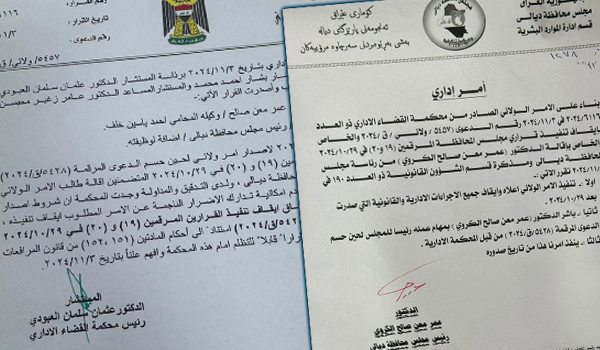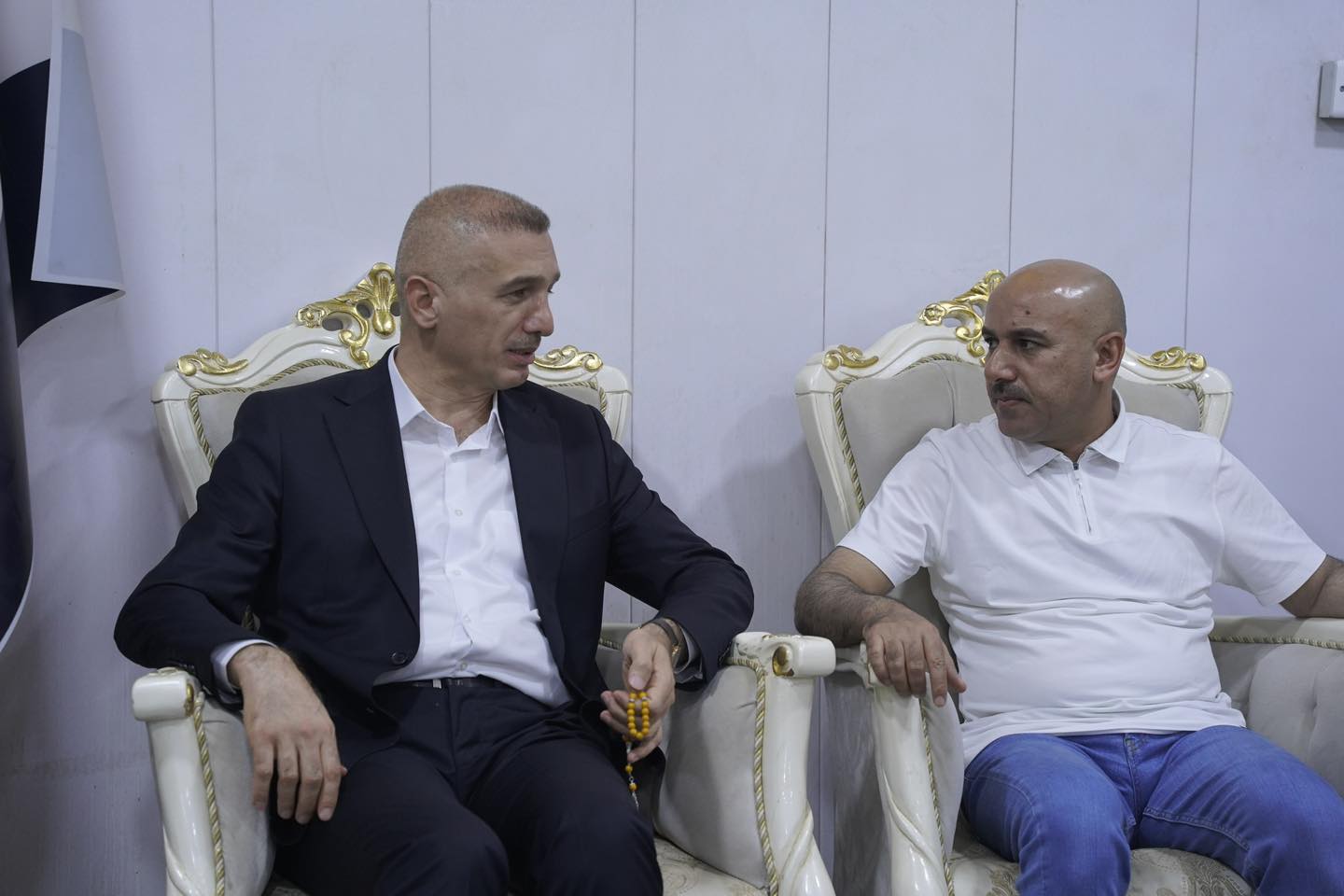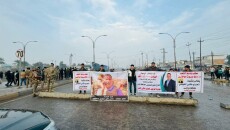The dismissed president of the Diyala provincial council, has been reinstated after being removed for several days, per the decision of the Administrative Court pending resolution of his complaint.
Omar Krui assumed his position on Sunday afternoon, November 3, as shown in a video where he entered the council accompanied by armed bodyguards and was escorted to his office.
This occurred simultaneously while his deputy Nizar Lihebi have sworn in for the same position.
The Administrative Court's decision was made on November 3rd to halt the procedures and changes within the Diyala provincial council until the case is resolved in court, with no clear hearing date provided.
In his initial decree upon taking office, Omar ordered the suspension of all administrative and legal actions issued after his dismissal on October 29.
On October 29, the provincial council voted to remove Krui from the speaker position and opened nominations for the role. Nine out of the 15 members were present, but Krui later denounced the removal as "illegal and unofficial."
Lihebi was sworn in as the new speaker of the Diyala provincial council in front of the judiciary prior to the Administrative Court's decision.
He was elected as the speaker of the provincial council on the evening of October 31, 2024, with 10 out of 15 members present.

(R) Verdict of reappointment for Omar Krui as president for DIyala provincial council on November 3 by the Administrative Courtwith (R) and letter of council to suspend procedures following his dismissal.
Lihebi, who was elected to the provincial council on the Taqadum (Progress) list, chaired by former speaker of Iraqi parliament Mohammed al-Halbusi, had previously been a protester and had boycotted several council sessions, including the session of August 1st in Baghdad to establish a local government and appoint council speaker and governor positions, before eventually becoming council chairman.
The 15 members of the Diyala Council were first divided into two teams: The Team of Eight and the Team of Seven. The two teams include a mixture of Shiite and Sunni parties seeking to secure the largest number of senior positions in the local government in their favor.
Later, a new coalition was formed by nine out of 15 members, excluding the Patriotic Union of Kurdistan PUK, which did not participate. The other parties were the same ones that held an emergency meeting last August in Baghdad, resulting in the election of the council speaker, governor, and deputies after months of controversy.
Krui, affiliated with the Siyada (Sovereignty) list (led by Sunni leader Khamis Khanjar), attributed his situation to political disagreements with other political parties. This references the political rivalry between Khanjar and Halbusi on various issues, particularly the parliamentary speaker post in the previous year, which was ultimately decided in favor of Halbusi.
The first council session after the elections took place on February 5, but due to disputes among factions, it remained open until August 1 at the Rashid Hotel in Baghdad. The election process for speaker, deputy speaker, governor, and two deputies led to a boycott, and protesters blocs returned to the council in September. However, the election of administrative unit heads and the recent removal of the council head reignited divisions within the institution.
Diyala Provincial Council consists of 15 seats, four of which are allocated to women. Diyala province is home to 1.6 million people, 90,000 of whom live in the center of the Khanaqin dominantly Kurdish district, according to estimates by the Central Bureau of Statistics for 2019.
Diyala province consists of six districts and 15 sub-districts, including various disputed areas under Article 140 of the Iraqi constitution, such as Khanaqin district.
*This story has been produced as part of the 'Budget is Your Right' initiative, with support from the National Democratic Institute (NDI).






